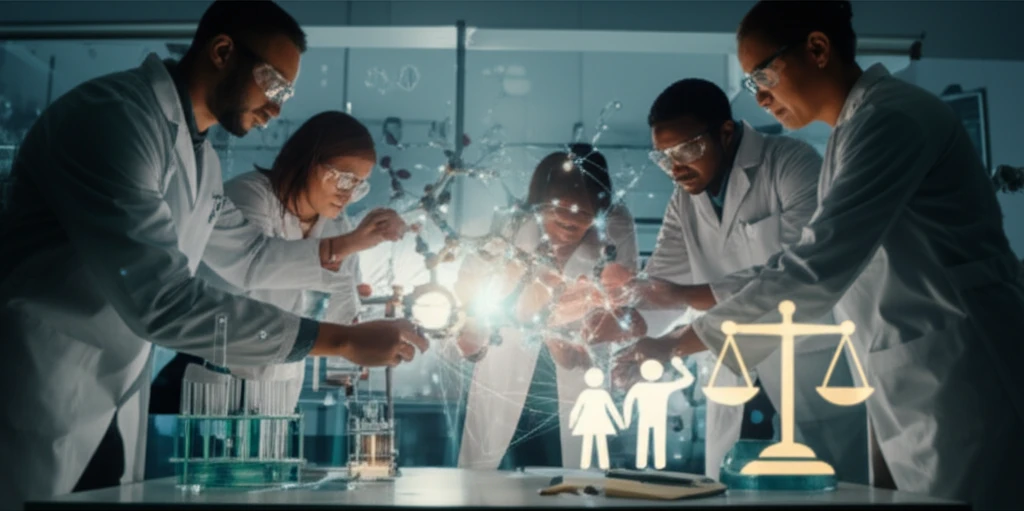
Science Diplomacy: How ACS Champions Human Rights in Chemistry
"Discover how the American Chemical Society's initiatives are fostering scientific exchange, protecting researchers, and upholding ethical practices worldwide."
In an era defined by rapid geopolitical shifts and an ever-increasing flow of information, the role of science in fostering international cooperation and upholding human rights has never been more critical. The American Chemical Society (ACS), as a leading scientific organization, has taken a proactive stance in addressing these challenges through its Science & Human Rights program. This initiative not only aims to protect the rights of chemists and researchers worldwide but also seeks to promote ethical practices and ensure the free exchange of scientific knowledge.
The ACS Science & Human Rights program recognizes that scientific progress is inextricably linked to the principles of human rights. When researchers are threatened, whether by political instability, discriminatory policies, or restrictions on academic freedom, the entire scientific community suffers. By advocating for these individuals and promoting a culture of ethical conduct, the ACS strives to create an environment where scientific discovery can flourish for the benefit of all.
This article delves into the multifaceted efforts of the ACS Science & Human Rights program, exploring its key initiatives, successes, and ongoing challenges. From engaging members through the Alert Network to fostering global collaborations and promoting ethical guidelines, the ACS is working to build a more just and equitable scientific landscape. Join us as we examine how this program is making a tangible difference in the lives of scientists and the advancement of chemistry worldwide.
Safeguarding Scientists at Risk: The ACS Alert Network

One of the most impactful components of the ACS Science & Human Rights program is its Alert Network. This rapid-response system engages ACS members to take action on behalf of chemists and chemical engineers who are facing threats or persecution. When a scientist's rights are violated, the Alert Network disseminates information and mobilizes members to advocate for their protection.
- Rapid Response: The Alert Network quickly mobilizes members when a scientist's rights are threatened.
- Advocacy: Members engage in letter-writing campaigns, contact government officials, and raise awareness through social media.
- Solidarity: The ACS demonstrates its commitment to standing with its members and defending their rights.
Promoting Ethical Practices: The Global Chemists' Code of Ethics
Recognizing that ethical conduct is paramount to scientific integrity, the ACS has spearheaded the development of a Global Chemists' Code of Ethics. This initiative, supported by the U.S. Department of State's Chemical Security Program, brings together scientists from around the world to establish a common set of ethical principles that can be applied to chemistry-related businesses, academic institutions, and civil society organizations. The code addresses issues such as responsible research practices, environmental stewardship, and the prevention of chemical weapons proliferation. By promoting ethical conduct, the ACS aims to foster a culture of trust and accountability within the global chemistry community.
